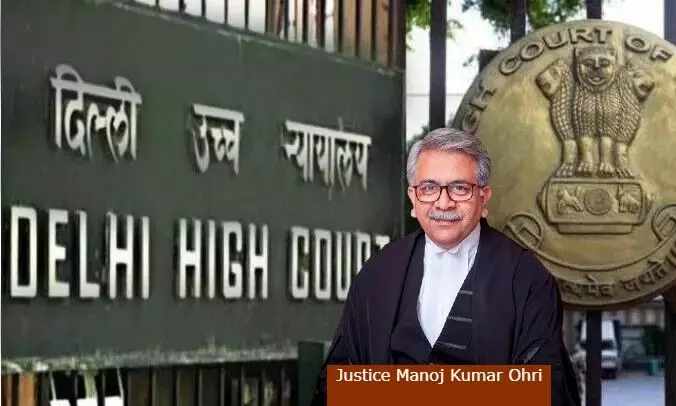
Justice Manoj Kumar Ohri, Delhi High Court
In Cases Of Sexual Exploitation, Minor Inconsistencies In Victim's Statement Should Not Be Used To Dismiss An Otherwise Trustworthy Prosecution Case: Delhi HC
 |
|The Delhi High Court has held that in cases of sexual exploitation, minor inconsistencies in the victim's statement should not be used to dismiss an otherwise trustworthy prosecution case.
The Court maintained the conviction of the accused under Sections 451, 376 and 506 of the IPC by the Trial Court, but modified the sentence to the period already undergone in view of the “mitigating facts and circumstances.” The accused was
A Single Bench of Justice Manoj Kumar Ohri observed, “In cases of sexual exploitation, factors that do not significantly affect the credibility of the prosecution's case, or minor inconsistencies in the victim's statement, should not be used to dismiss an otherwise trustworthy prosecution case. The victim's testimony is crucial, and unless there are strong reasons necessitating corroboration, the Court should not hesitate to convict the accused based solely on the victim's testimony if it is credible and inspires confidence.”
Advocate R.P. Luthra represented the Appellant, while APP Laksh Khanna appeared for the Respondent.
The prosecution alleged that the accused entered the victim’s room, assaulted her, and committed rape. He also threatened her and criminally intimidated her not to report the incident. The Trial Court convicted the accused and sentenced him to rigorous imprisonment: one year for the offence under Section 451 of the IPC, three years under Section 506 of the IPC, and seven years under Section 376 of the IPC.
The accused filed an Appeal challenging the conviction and sentence, contending that the evidence did not inspire confidence due to material inconsistencies in the testimony of the prosecutrix and other witnesses.
Even though the accused contended that certain improvements were made by the victim during her deposition, the High Court stated that the same was not material to doubt her testimony insofar as commission of the offence of rape was concerned. “It was argued that in her initial statement, the prosecutrix had stated that the appellant after committing the offence ran away but in her testimony claimed that the appellant became unconscious and was lifted away. Notably, the deposition was recorded after lapse of about one and half year of the incident,” the Bench remarked.
The Bench took note of the an affidavit stating that the victim had pardoned the accused for his “unlawful act.” It noted that as per the latest Nominal Roll on record, the accused had already undergone a period of about three years and his jail conduct was also observed to be satisfactory.
Consequently, the Court held, “Considering the aforesaid and after going through the evidence on record as well as keeping in mind the afore-noted principles, this Court is of the considered view that there is no infirmity or perversity in the impugned judgment.”
Accordingly, the High Court dismissed the Appeal.
Cause Title: Satish Kumar v. State (Neutral Citation: 2024:DHC:9618)
Appearance:
Appellant: Advocates R.P. Luthra and Himanshu Luthra
Respondent: APP Laksh Khanna